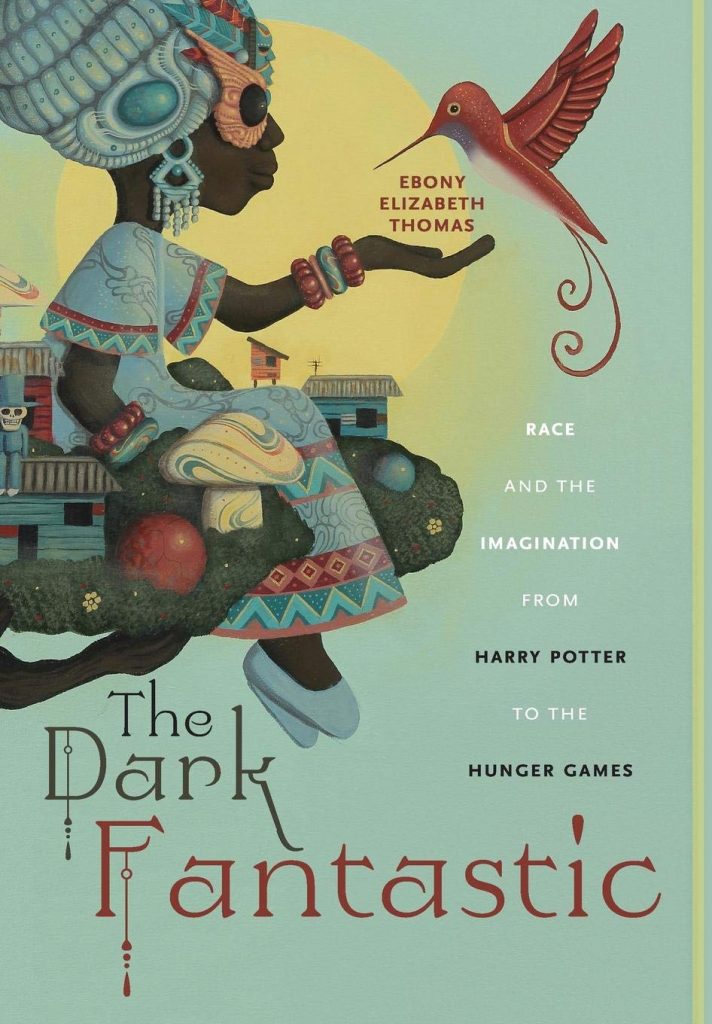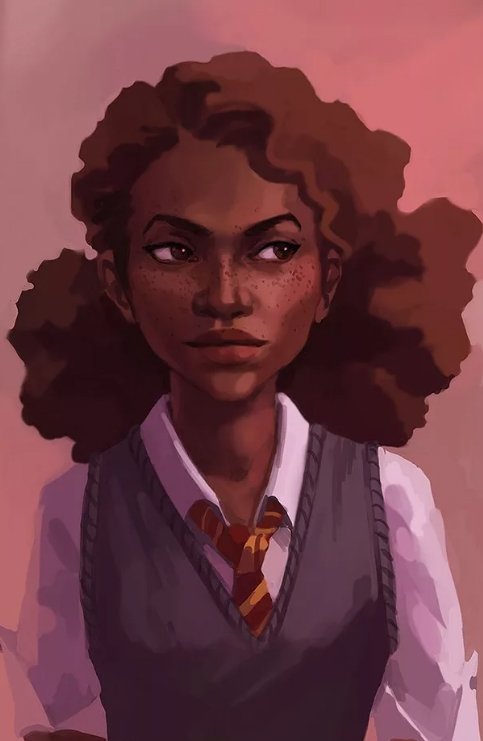Ebony Elizabeth Thomas Explores Race and the “Harry Potter” Fandom in “The Dark Fantastic”
Along with Twilight and The Hunger Games, Harry Potter is widely considered to be among the “big three” of teen-centered stories that helped usher in the contemporary era of YA dominance. But as YA has grown in cultural prominence, the decades-old failings of diversity and representation in children’s literature have also come under increased scrutiny. In recent years, the organization We Need Diverse Books has formed to combat the issues, but yearly statistics from the Cooperative Children’s Book Center show that children’s books, including YA, are still overwhelmingly written by white authors and about white characters.
It is just this crisis that Ebony Elizabeth Thomas explores in The Dark Fantastic: Race and the Imagination from Harry Potter to the Hunger Games. While lack of representation is a problem across genres in children’s literature, Thomas’s focus is specifically on what she calls the “fantastic” (essentially, what most of us would consider “fantasy”). Since these are works that require magic, dreaming, and the impossible in order to function, the exclusion of non-white characters seems especially damning; stories that are written to allow their readers to escape instead become imaginative prisons, reinforcing the racism and inequality of contemporary western culture.

Thomas terms this phenomenon an “imagination gap,” pointing toward the serious consequences of the overwhelming whiteness of children’s books. In The Dark Fantastic, she focuses on how this imagination gap is manifested in the representation of young, black, female characters in The Hunger Games, Merlin, The Vampire Diaries, and Harry Potter. In fact, while the subtitle suggests her argument will start with the boy wizard and move toward Suzanne Collins’s trilogy, the book progresses in the other direction, beginning with an analysis of Rue in The Hunger Games and concluding with issues of race in the Harry Potter fandom.
The book’s final chapter, “Hermione Is Black,” will undoubtedly be of the most interest to MuggleNet readers and not just for its focus on everyone’s favorite witch. Thomas has deep ties to the Harry Potter fandom, having been prominently involved in online groups in the early 2000s. Thomas, known online as AngieJ (short for Angelina Johnson), was a committed Harry-Hermione shipper and a well-known writer of fan fiction before accusations of plagiarism forced her out of the fandom. In the chapter, she uses her experiences in the fandom as a launching point for discussing the ways in which imagining a racebent Hermione was (and is) an emancipatory act for young black readers. While some white readers might be most familiar with the concept of a black Hermione because of Noma Dumezweni’s controversial casting in Harry Potter and the Cursed Child, Thomas’s primary focus is instead on how fans of color critique and modify white narratives through acts of imagination.

Art by mariannewiththesteadyhands
The Dark Fantastic is an excellent resource for fans who want to understand more fully the pervasive harm perpetuated by an almost all-white YA canon. I do wish that Thomas had done more to account for her genre-hopping (the main focus seems to be literature, but most of the examples cross media boundaries). The work of The Dark Fantastic seems to essentially be descriptive, giving a name to the specific way in which the imagination gap causes harm via depictions of black female characters. Thomas’s readings, while excellent, didn’t help me understand each isolated text differently than I did before, but she does a remarkable job of showing us what we can gain from understanding every instance she analyzes as part of a pattern with a specific structure. If you care about thoughtfully engaging with race, Harry Potter, and fandom, you definitely need to check out The Dark Fantastic.
Thanks to NYU Press for providing us with a copy of the book to review. Order yours here.

